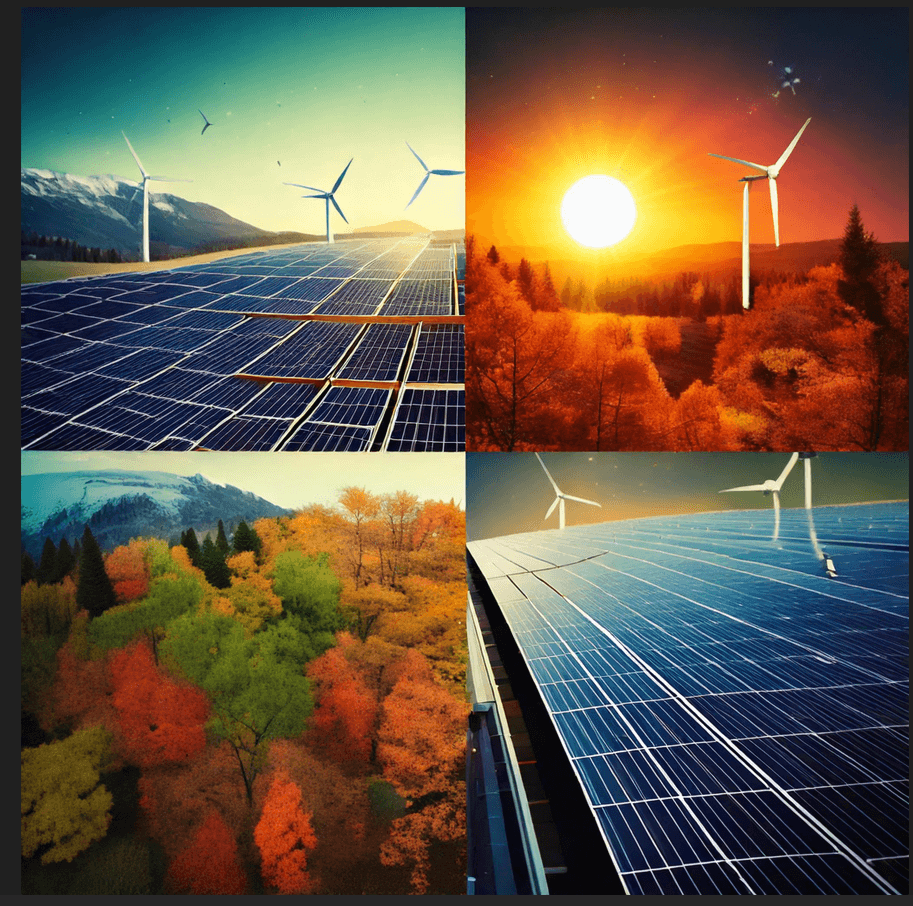Thankful for Savings: How Solar Panels Create Financial Relief Year-Round
It’s Thanksgiving and if there’s one thing many of us are thankful for, it’s our solar panels. Solar panels do their part to save the environment, but many of us are grateful for the money savings they offer year-round. Here are some of the ways they help us save throughout the year.
Solar Panels Mean Money Saving at Tax Time
Taxes are on everyone’s mind at the beginning of the year. We meet with our accountants wondering how much we’ll owe. If you invested in solar panels this tax year, breathe a sigh of relief. Thanks to the federal solar tax credit, they could add up to some real tax savings.
The federal solar tax credit allows you to claim 30% of your installation costs as a tax credit. That includes how much you spent on equipment, installation, and extras like solar storage.
Since it’s a credit, it deducts from the amount you owe in taxes. If the taxes you owe are less than 30% of your solar panel installation, the credit rolls over into the next tax year.
People who want to take advantage of the tax credit may consider getting their panels installed sooner rather than later. The credit currently equals 30% of your panel’s value, but that number will decrease to 26% in 2033, and 22% in 2034 before disappearing altogether in 2035.
The federal tax credit may not be the only way to save at tax time. You may also be eligible for local savings in your area. Talk to your accountant to determine how much you can save with solar.
How the Season Impacts Solar Production
As the year goes by, you will see fluctuations in your energy production. Variations depend on the season. In summer, you have lots of sunlight and lots of energy. When winter comes, the stormy season can impact energy production. But your panels can still save you year-round.
Let’s look at how they generate energy across the seasons.

Warmer Months
There is no doubt that panels work better as temperatures heat up. For one, the sun is out longer during the spring and summer. Panels have plenty of opportunity to absorb light and convert it into power.
The angle of the sun also contributes to increased efficiency during the summer months. The sun is directly overhead generating stronger rays. The angle and strength of the sunlight make it easy for panels to absorb energy.
These conditions add to optimal energy production from March to September. If you divide the year into two six-month portions, you will find about two-thirds of the total energy generated from solar occurs during the spring and summer. And you’ll feel those savings on your electric bill considering how much you spend on air conditioning.
Colder Months
Solar energy production decreases in the winter months making some people wonder if their panels are even worth it- especially if they live in regions prone to nasty weather. However, solar can still save you money when it’s stormy and cloudy. There are even some benefits to going solar in areas with inclement weather.
For example, even though panels generate more energy when it’s warm and sunny, excessive heat interferes with their efficiency. When temperatures rise above 77 degrees Fahrenheit, panels begin shutting down. High temperatures can even damage panels.
You can’t say the same for freezing temperatures. Solar panels will continue working in temperatures as low as -40 degrees Fahrenheit. Most climates rarely see those temperatures, if ever, meaning your panels are safe.
Additionally, snow can attract sunlight making your panels more efficient.
The power you generate during winter months will help counter the energy expenses that tend to increase as temperatures drop. For example, heating bills are expected to get especially high in 2024. Fortune.com warns that people who use gas heat will see an increase of 10.5% in their heating bills as compared to last year, while households that use electric heat will see a whopping 13.6% increase.
Solar panels provide energy from the sun to counter those expenses.
And heating is not the only reason why winter is a popular season for energy use. We also turn our lights on early due to decreased sunlight. Many households entertain guests and cook during the holiday season causing an increase in energy generation.
Solar decreases these expenses giving us another reason to be thankful.
Ways to Get the Most Out of Your Panels When Temperatures Drop
Although there are benefits to going solar in cold temperatures, energy production will decline. However, there are things you can do to make the most out of the energy your panels produce. Here are a few tips to keep in mind:
Use Solar Storage: Solar batteries store the energy your panels produce when the sun is out so you can use it on cloudy days.
Optimize the Angle of Your Panels: If possible, adjust your panels to a steeper angle during winter to maximize exposure to a lower sun. You may also consider adding tracking technology which allows your panels to follow the sun as it moves across the sky.
Maintain Your Panels: Snow tends to melt off panels easily considering the warmth of energy production. The panel’s angle also helps snow slide off. However, winter storms can cause debris to fall on your panels and interfere with energy production. Check them regularly to ensure they are clear.
Invest in Efficient Panels: Consumers may invest in monocrystalline or polycrystalline panels. (There are other types, but these tend to be the most popular.) Monocrystalline panels have efficiency ratings between 15% and 20% while polycrystalline panels range from 13% to 16%. Monocrystalline panels may be excessive for some households, but you may consider investing in them if you live in a climate that experiences a lot of inclement weather. They will make the most out of the available sunlight.
Insulate Your Home: Insulation reduces your need for electric heat production so you can optimize the energy your solar panels produce.
Solar Panels Reduce Costs During Grid Outages
Solar panels also help save money when the grid goes down.
Power outages are a common occurrence in winter and summer. During winter, extreme storms cause outages. In summer, many people run their air conditioning taxing the grid. When it becomes overloaded, outages occur.
Energy Sage estimates the cost of grid outages as follows:
Replacing a refrigerator full of spoiled food: $200
Emergency supplies: $250
A day of lost productivity: $200
Property damage: $500-$25,000
Alternative housing for one night: $150
Solar panels continue operating during power outages reducing some of these expenses. Battery storage can optimize energy use making savings even more impactful. When you consider the increase in severe storms due to climate change, solar panels are a wise investment.
Increases Home Value
Solar can also help financially when it’s time to sell your home. A National Renewable Energy Laboratory report found home value increases by $20 for every $1 you save on energy bills. A Zillow report found homes with solar panels sell for 4.1% more than non-solar homes which translates to an additional $9274 considering average home prices.
Homes with solar panels will also attract more buyers and sell faster. A 2021 Zillow housing trends report found that 67% of buyers think energy efficiency is very important when buying a home. A study conducted by the U.S. Department of Energy showed homebuyers are willing to pay $15,000 more for a solar-powered home.
How to Get Even More from Your Solar Savings
Homeowners can maximize solar savings by paying attention to local tax laws and installing panels for optimal efficiency. Here are some other ways to save when going solar:
Avoid Financing: Not many people can afford to pay for solar panels outright, but paying cash eliminates interest which can add to expenses. If you must finance, try to find a plan that offers limited-time interest-free payments to save money. You may also qualify for a home equity loan which offers tax-deductible interest.
Enroll in net metering: Households with solar installations attached to the grid can use net metering to save money. It involves sending unused energy back to utility companies in return for a credit on your electric bill. Net metering is mandatory in many areas so you may already be eligible for savings. However, if it is not mandatory in your area, you may consider enrolling.
Use Solar Generated Energy Wisely: Plan to use appliances when solar panels generate the most energy. Your appliances will be most efficient during these hours.
Solar America Helps You Save Year Round
Solar panels are a money and energy-saving option. If you feel they are right for you, Solar America can help you get started on your journey.
Input your information into our online form. Our system will generate a list of reliable providers in your area. Review your options to find the ones that are right for you. Our competitive system ensures you find the lowest prices.

